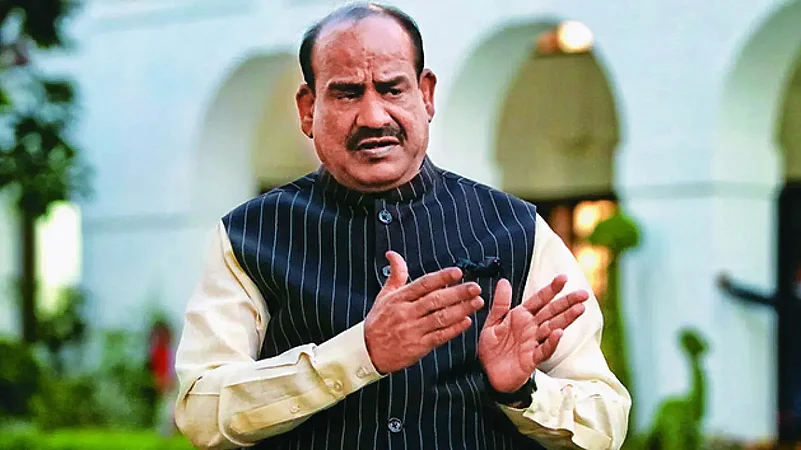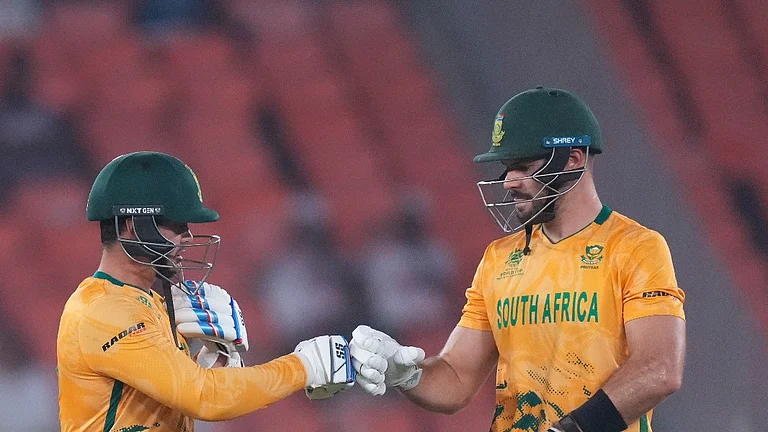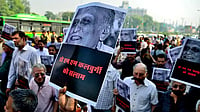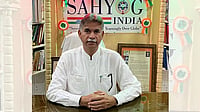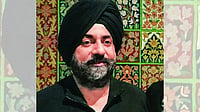On June 19, Om Birla completed three years as Lok Sabha Speaker. Downplaying the controversies over passages of several bills, he describes his tenure as successful, asserting that he has always strived for consensus between House members through dialogue, in keeping with parliamentary traditions. In an exclusive interview with Outlook’s Ashutosh Sharma, Birla expressed concern over falling standards of parliamentary debate. He, however, parried queries on who he feels are the few parliamentarians who represent the great Indian parliamentary debate tradition today. Edited excerpts:
What are the major challenges you have faced as Lok Sabha Speaker?
During eight sessions of Parliament in three years, all members of the House played a constructive role and cooperated with me. Productivity has been high—whether it was Question Hour, Zero Hour, a discussion under Rule 193, debate on the President’s address or budget. Despite the pandemic, they fulfilled their constitutional obligations and often worked till late in the night.
Some bills were passed without serious discussion. We saw two major protest movements in recent years.
The bills were not passed amid din. We had extensive and serious discussions on both. On the farm bills, the discussions exceeded the allocated time. The discussion on the Citizenship Amendment Bill continued till late in the night. Different ideologies of political parties, their disagreements and agreements are a characteristic feature of our democracy. An elected government brings in a bill and then follows the parliamentary process of discussion, debate, suggestions and amendments.
Recently, some non-money bills were introduced as money bills in Parliament. It created some major controversies. How do you see this happening?
Everyone has a right to create controversy in a parliamentary democracy. Which bill will be presented as a money bill, it is the sole prerogative of the Lok Sabha Speaker, and the Supreme Court has upheld it. The Speaker is also tied to the Constitution. He can’t violate the Constitution.
It is often stated that the standard of parliamentary debate is going down in the country. How do you view such concerns?
Certainly, it is our constant effort to improve the quality of debates. Our Parliament has been witness to great debates and dialogue in the past. We have taken several steps to facilitate capacity building among members of Parliament. The Parliament secretariat has started a 24x7 service to make available research papers regarding the bills, public feedback on the bills and the issues of public interest. By July-end, we are going to digitise all parliamentary speeches in Hindi as well as English. This will help young parliamentarians to hone their debating and dialogue skills. The results will begin show slowly and gradually.
A few parliamentarians who you think are the best debaters representing India’s parliamentary debate tradition?
Parliament is the supreme institution where you get to hear voices from different regions and cultures. The idea of development is always different in different parts of the country. One gets to know about different sentiments regarding peoples’ issues. I have a keen interest in the speeches delivered by all former members who raised the profile of parliamentary debates. Soon after Independence, we saw sharp and animated debates, exchanges of barbs and banter. Parliamentary democracy is considered to be the best form of governance because of the quality of dialogue.
In the past 75 years, we have used this forum to formulate laws which have improved the social and economic conditions of citizens. When India celebrates 100 years of Independence, we want it to be a front-ranking nation. Prime Minister Narendra Modi wants a discussion in Parliament on how India should be shaped in the next 25 years. We want active participation of the youth in the democratic process. While the Constitution should be the guiding light, there is a need to understand the contributions of all former prime ministers and people who made sacrifices during the Independence movement.
Parliamentarians or legislators tend to vociferously raise sensational issues but ignore sensitive issues of public interest.
Every political party has its own ideology. It is for them to decide which issues would be debated. In Parliament, we had discussions on the issue of climate change and disability rights. We discussed the challenges that extreme climate stresses poses, and ways to redress them. The government has also shared its national and international policies with the House members. But there is a need for more discussions on such sensitive and humanitarian issues.
But whenever such issues come up for discussion, mostly we get to see vacant benches?
People always have more expectations from the Legislature, as they elected their representatives, when compared with the Executive and Judiciary. And Parliament is a representative institution that directly deals with the peoples’ hopes, problems, deprivations and their feedback. Elected public representatives need to spend more time inside the House. This experience would certainly help them to strengthen public welfare works in their respective constituencies.
How successfully is the Legislature in making the government accountable, or is it just endorsing the government?
Certainly, the Executive is accountable to the Legislature and the Legislature is accountable to the people. The more we strengthen the Legislature, the more transparent the Executive would ultimately become. That’s why I keep stressing on members of the House that we should hold constructive discussions on serious issues.
Does the Opposition need to be more aggressive or cooperative in its role?
The country always expects the Opposition to play its role in a constructive way. In a parliamentary democracy, the Opposition should be strong enough to bring transparency in the functioning of the government. Only a strong and constructive Opposition can strengthen democracy and make the government accountable to the people.
Some assembly Speakers have demonstrated party bias and have even campaigned for party candidates in recent elections?
Speakers must take a cue from the great precedents set by their predecessors. They are supposed to be impartial in their approach and decision-making.
(This appeared in the print edition as "Everyone Has a Right to Create Controversy")


